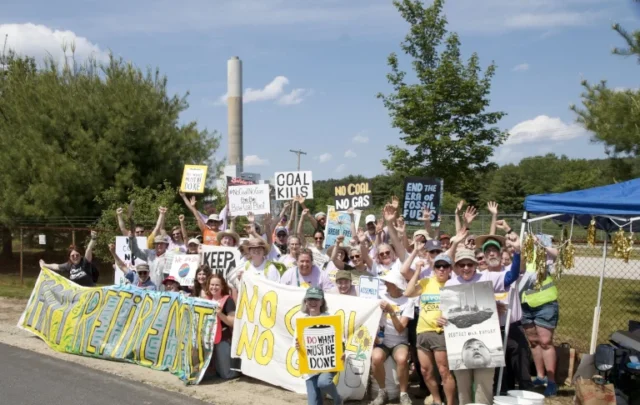Excerpts from the 21-page PDF, available onlne.
The All Party Parliamentary Group on Peak Oil (APPGOPO) was set up in July 2007 to review
estimates of future oil production and consider the consequences of declining world
oil production for the UK and world economy.
Contents
Foreword by John Hemming MP
1 Executive Summary
2 Peak Oil
3 The political and economic impacts of Peak Oil
4 The impact of energy scarcity on humanitarian affairs
5 Possible Solutions: Building resilience
6 Alternative Energy Systems
7 Food Production
8 Resilient Community Design
9 Conclusions and Recommendations
Foreword by John Hemming MP
… In light of [peak oil] I was keen to invite experts in international development to address the All Party
Parliamentary Group on Peak Oil (APPGOPO). In March of this year RESET, Practical Action
and Global Witness made clear to the group that big changes will be required in the
international development community if it is to cope with the emerging energy crisis. RESET
and Practical Action with whom this report has been produced, spelt out how training in truly
sustainable, non-fossil fuel dependent energy generation, construction and farming methods will
be essential if communities are to become resilient to energy price rises.
In a warming world, disaster relief is likely to be more necessary than ever, as the frequency of
drought, famine and severe weather conditions increases. The ability to respond to disasters
will be seriously affected by rising energy costs. Governments and the international disaster
relief community must consider how their operations will be affected by peak oil if they are to
effectively tackle disasters in the future. …
1 Executive Summary
The world is on the brink of an energy crisis that has drastic implications for people in the
developing world. As almost every aspect of modern life is sustained by cheap energy, the
impacts of rising oil prices will be profound.
Energy security has become a political priority for governments world-wide, a priority which
needs to be reflected in the field of international development.
… Many cities1, and some nations2, realise that global Peak Oil is not only inevitable, but
imminent. This paper argues that contingency planning now – and subsequent mobilisation
of training and adaptation of programme design – must be seen as a high priority.
This paper looks initially at Peak Oil and the likely political and economic impacts. Next it
presents a series of proposals for practical strategies to build resilience in a time of sharply
rising energy prices. Viable alternatives are offered in food production, human settlement
design and local energy security.
Global oil production is reaching its peak, critical decisions are needed to prepare
communities everywhere for the dramatic and irreversible changes ahead. Carrying on with
‘business as usual’ is no longer an option.
Peak Oil
- Modern society owes its growth to energy derived from fossil
fuels, and is almost entirely dependent on it. - Global oil production has remained level since 2005, despite
significant investment and rising prices. - Peak Oil is likely to occur in the near future: our challenge is
to mitigate its impacts and enable communities to develop
resilience and self-reliance.
The political and economic impacts of energy scarcity
- High energy prices reverse MDG progress
- Current oil prices are likely to cause global economic
recession - Peak Oil will impact the most vulnerable in developing
countries, at a time when the twin injustice of climate
change is already hitting hard - Reduced energy demand and alternative energy sources are
essential for economic and political security
Impact of energy scarcity on humanitarian relief
- The current aid model is energy hungry and vulnerable to
energy scarcity - Capacity to provide assistance is dwindling as the world
economy is hit by soaring oil prices - The food crisis is set to deepen if modern agriculture
remains reliant on fossil fuels - As we strive to “make poverty history” the twin crises of
climate change and energy scarcity threaten to make it
permanent
8 Resilient Community Design
Resilient Buildings
- Climate responsive design which provides thermal comfort and security
- Energy efficient design for minimum energy demand
- Building materials and practices that support local, transferable skills development
- Durable design that supports health and well being
- Design for minimum environmental impact, by using local and renewable
materials - Design for low cost and maintenance
- Skills training in appropriate, low energy building design
Renewable Energy Generation
- Capture and use of local energy sources (solar, wind, micro-hydro, bio-gas)
- Design for local/community level energy storage and supply
- Energy systems which support local, transferable skills development
- Design for minimum cost and maintenance
- Skills training for maintenance and replication
Local Food Production
- o Zoning for food production spaces
- Planning for allotments and orchards around buildings
- Consideration of design appropriate to arid, temperate or humid climates
- Minimise external inputs, maximise internal, organic inputs
- Community supported agriculture, including possibilities for urban agriculture32
- Skills training for local food production
Integrated Water & Sanitation
- Implementing rainwater capture, storage and supply strategies
- Micro-irrigation for local agriculture
- ‘Grey-water’ retention, filtration and use
- Energy capture and use from sewerage and organic waste (compost,
vermiculture, biogas)





